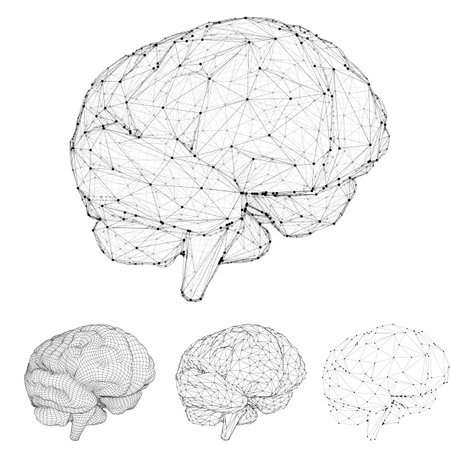Introduction: Understanding Acquired Disability in the UK Context
Acquired disabilities are a significant yet often under-discussed aspect of modern British society. Unlike congenital conditions present from birth, acquired disabilities develop later in life, frequently as the result of accidents, illnesses, or age-related factors. In the United Kingdom, it is estimated that over 13 million people live with some form of disability, with a considerable proportion acquiring their condition during adulthood. Common causes include road traffic collisions, workplace incidents, strokes, and progressive medical conditions such as multiple sclerosis and arthritis. The prevalence of acquired disabilities has profound implications not only for individuals but also for communities and support systems across the country. Understanding these realities is essential when considering the broader psychological impact experienced by those navigating newly altered bodies and lives. This context sets the stage for a deeper exploration of how identity and self-perception are reshaped following the onset of disability, and why it is vital to address the mental and emotional ramifications alongside physical rehabilitation within the UK.
2. Initial Emotional Responses and Coping Mechanisms
When an individual in the UK acquires a disability, the initial psychological impact is often profound and complex. Typical responses include shock, denial, and grief—each stage shaped by both personal history and the wider cultural context. The immediate aftermath can be likened to an emotional whirlwind: many report feeling overwhelmed or numb, struggling to process the sudden change to their bodies and lives.
Common Emotional Reactions
| Stage | Description | British Cultural Influence |
|---|---|---|
| Shock | An initial sense of disbelief or emotional paralysis. | The British value of stoicism may lead individuals to mask their true feelings. |
| Denial | Refusal to accept the new reality, sometimes minimising its impact. | A tendency towards “keeping a stiff upper lip” might delay seeking support. |
| Grief | Mourning the loss of previous abilities or life plans. | Expressions of loss may be subdued due to societal expectations around emotional restraint. |
Early Coping Strategies in a British Context
The adoption of coping mechanisms in Britain often reflects unique societal values. Many people turn to humour—a classic British tool for diffusing tension and discomfort. Others rely on close-knit family networks or long-standing friendships for practical and emotional support. Additionally, structured routines and maintaining participation in community activities, even in modified forms, help foster a sense of continuity amidst upheaval.
Summary of Common Coping Approaches
- Humour: Lightening difficult moments with wit or irony as a means of regaining control over the situation.
- Social Support: Leaning on friends, family, or peer groups to share experiences and advice—valuing privacy while still accepting help when needed.
- Routine: Continuing daily habits where possible, which provides stability and reinforces a sense of normalcy.
- Seeking Information: Proactively researching medical facts or connecting with local charities (such as Scope or Leonard Cheshire) to better understand one’s condition.
Cultural Nuances in Coping Mechanisms
The British tendency towards understatement can be both protective and isolating; while it may help individuals maintain dignity during vulnerable times, it can also impede open conversations about mental health needs. Recognising this duality is crucial for professionals supporting newly disabled individuals, ensuring that encouragement to seek help respects both personal boundaries and broader cultural norms.

3. Identity Reconstruction and Self-Perception
Experiencing an acquired disability often triggers a profound reassessment of one’s identity and self-worth. In the UK, where there is a strong emphasis on independence and self-reliance, individuals may initially grapple with feelings of inadequacy or loss of purpose. The process of identity reconstruction is rarely linear; it involves navigating internal conflicts as well as external expectations.
The Role of Societal Attitudes
Societal attitudes in Britain have evolved considerably over recent decades, yet subtle biases and ingrained stereotypes persist. These can influence how people with acquired disabilities perceive themselves. For example, the tendency to conflate physical ability with value or productivity can inadvertently undermine self-esteem. Media portrayals and public narratives—often focused on either ‘overcoming’ adversity or being objects of pity—can create pressure to conform to limited roles, leaving little space for authentic self-expression.
Cultural Narratives and Local Contexts
The British cultural narrative around resilience—‘keeping a stiff upper lip’—may encourage some to downplay emotional struggles or avoid seeking support, further complicating the journey toward positive self-perception. At the same time, there are growing grassroots movements championing disability rights and inclusion across the UK. These local initiatives help foster environments where individuals feel empowered to redefine their identities beyond medical labels or societal expectations.
Negotiating Self-Worth
Ultimately, reconstructing identity after acquiring a disability requires balancing personal experiences with cultural context. Support networks, peer groups, and inclusive communities play a pivotal role in this process by providing validation and shared understanding. As people challenge prevailing narratives and advocate for broader acceptance, new models of self-worth emerge—rooted not in perceived limitations, but in lived experience and individual agency.
4. Community, Support Systems, and Belonging
The journey of psychological adjustment following the onset of an acquired disability is profoundly shaped by the quality and accessibility of support systems. In the UK, these systems range from formal institutions like the NHS to grassroots disability organisations and informal peer networks. Each plays a distinct role in promoting inclusion, fostering resilience, and cultivating a sense of belonging within society.
The Role of the NHS and Formal Support Structures
The NHS is often the initial point of contact for individuals adapting to new disabilities. From rehabilitation services to mental health support, it provides essential care that can significantly influence early stages of adjustment. However, experiences with the NHS can vary depending on location, funding, and individual circumstances. While some find their needs met with empathy and efficiency, others may encounter delays or gaps in provision, particularly regarding ongoing psychological support.
Grassroots Organisations and Peer Support
Alongside statutory services, grassroots organisations such as Scope, Disability Rights UK, and local peer-led groups offer tailored resources that address both practical and emotional needs. These organisations are often staffed by people with lived experience of disability, which can foster a stronger sense of understanding and solidarity. For many, engaging with peers who have navigated similar challenges provides validation and reduces feelings of isolation.
Comparing Sources of Support in Psychological Adjustment
| Source | Type of Support | Typical Impact on Wellbeing |
|---|---|---|
| NHS (Clinical) | Medical care; counselling; rehabilitation services | Stabilises physical health; offers initial psychological support; variable follow-up |
| Grassroots Organisations | Peer support; advocacy; community activities | Promotes belonging; empowers individuals; addresses social barriers |
| Informal Networks (Family/Friends) | Emotional encouragement; practical help | Reduces loneliness; supports daily living; varies with personal relationships |
Cultural Attitudes and Inclusion in the UK Context
The British approach to disability has evolved, yet attitudinal barriers persist in some communities and workplaces. Campaigns led by disabled people’s organisations have been pivotal in shifting perceptions towards greater acceptance and integration. This cultural progress is crucial for enabling individuals to reclaim agency over their identities and develop positive self-perception.
Towards Genuine Belonging
The interplay between formal healthcare provision, community-based initiatives, and informal relationships creates a tapestry of support that can either facilitate or hinder psychological recovery. When these systems function harmoniously—with adequate funding, inclusivity, and collaboration—individuals are more likely to feel seen, supported, and valued as members of society. Such belonging is not merely about physical presence but about feeling respected for one’s contributions and recognised beyond the label of disability.
5. Navigating Stigma and Societal Perceptions
Acquired disability often brings individuals face to face with stigma and a spectrum of societal perceptions that can be particularly acute in British society. Stigma, both overt and subtle, permeates everyday interactions and public spaces, shaping not only how disabled people are seen by others but also how they perceive themselves. In many cases, stereotypes and misconceptions persist—ranging from assumptions of dependency to doubts about capability—which can deeply affect one’s self-esteem.
The British value of ‘keeping calm and carrying on’ can sometimes translate into an expectation for people with disabilities to silently endure challenges, potentially leading to internalised stigma. This internalisation may result in feelings of shame or inadequacy, as well as reluctance to seek support or participate fully in community life. The effects are not merely emotional but have tangible impacts on public participation: whether it is hesitancy to use public transport due to anticipated judgement or discomfort in workplace settings where unconscious bias still lingers.
Moreover, the UK’s historical emphasis on politeness and reserve might inadvertently discourage open conversations about disability. For some, this means their experiences remain unspoken, further isolating them from potential allies and resources. While initiatives like Disability Confident and increased visibility during events such as the Paralympics have helped foster inclusivity, day-to-day encounters often reveal that social attitudes lag behind policy changes.
It is crucial for those navigating acquired disability to recognise that these societal barriers are not personal failings but reflections of broader cultural narratives. Building resilience involves both personal strategies—such as connecting with peer support groups—and advocating for systemic change. Overcoming stigma requires a dual effort: challenging prejudices within oneself and encouraging open, honest discussions within the wider community. Only by addressing both sides can we hope to create a more inclusive environment where identity and self-worth are not defined by disability.
6. Pathways to Acceptance and Personal Growth
For many individuals in the UK who acquire a disability, the route to acceptance and personal growth is far from linear. This journey often involves confronting societal perceptions, internalised stigma, and the emotional turbulence that comes with a change in identity. However, the British ethos of perseverance—often encapsulated in phrases like “keep calm and carry on”—plays a unique role in shaping these experiences.
Embracing Change: The First Steps
Initially, coming to terms with an acquired disability can be overwhelming. Many find themselves grappling with feelings of loss and frustration. Local support groups, such as those organised by Scope or Disability Rights UK, offer crucial spaces for sharing stories and building community. These connections help individuals realise they are not alone, fostering early steps towards acceptance.
The Role of Resilience in British Culture
Resilience is deeply woven into the fabric of British society. From public figures like Baroness Tanni Grey-Thompson, who has spoken openly about her own journey following spinal cord injury, to everyday people participating in initiatives like the Invictus Games, there are countless examples of Britons adapting creatively to new circumstances. These stories serve as powerful reminders that adversity can be met with determination and even humour—a distinctly British coping strategy.
Personal Development Through Advocacy and Community Engagement
Many individuals discover new strengths through advocacy or volunteering. The act of helping others facing similar challenges can foster confidence and a renewed sense of purpose. Programmes such as Leonard Cheshire’s Change 100 internship scheme provide opportunities for disabled people to develop professionally while challenging stereotypes within the workplace.
Cultivating Self-Compassion and Redefining Success
A critical aspect of personal growth involves reframing what success means post-disability. For some, this means focusing on small daily victories; for others, it may involve redefining career aspirations or relationships. British mental health organisations encourage practices like mindfulness and self-compassion, promoting emotional well-being alongside practical adaptation.
A Continuing Journey
Ultimately, acceptance is not a single destination but an ongoing process shaped by individual experiences and community support. The collective spirit found across the UK—rooted in resilience, mutual aid, and a willingness to “have a go”—continues to empower people living with acquired disabilities to reclaim their identities and flourish in unexpected ways.


